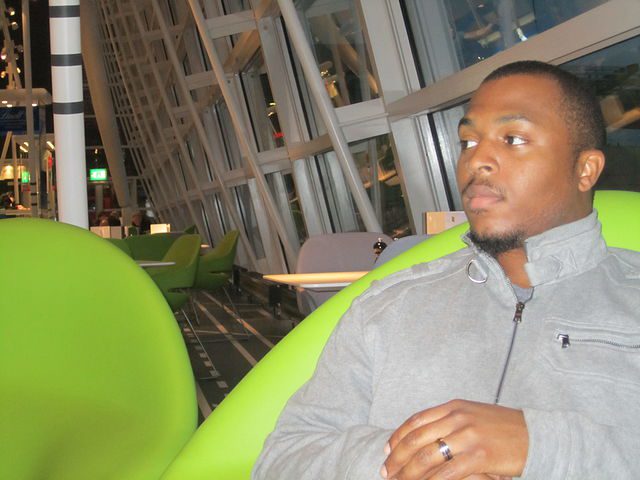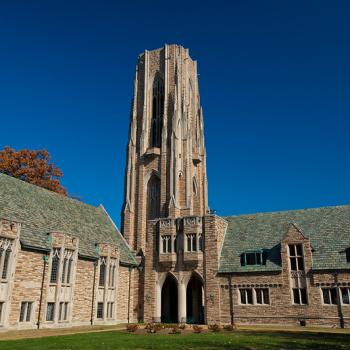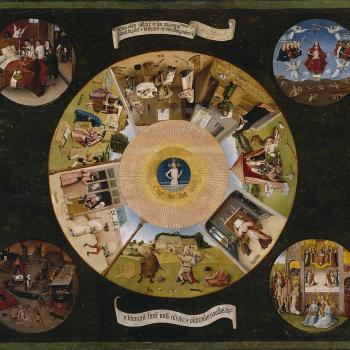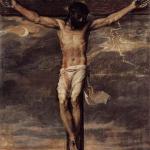
Word on Fire is an extensive Catholic media ministry. Led by Bishop Robert Barron, who has been called “the bishop of the internet,” Word on Fire puts out YouTube videos, books, DVDs, and a vast array of online resources all in the service of Catholic apologetics and evangelism.
While I was researching last week’s post on how contemporary Catholics talk about the presence of Christ in the eucharist, I stumbled upon something that surprised me. Back in 2021, Matthew Becklo, the publishing director of Word on Fire, wrote a post entitled “Christ for You”: Flame Unpacks His New EP on the Lutheran Belief in the Real Presence.
Flame, you will recall, is the Grammy-nominated rapper who became a Lutheran in the course of earning an M.A. in the non-pastoral track at Concordia Seminary. Flame, also known as Marcus Grey, tells the story of how and why he moved from his background as a Reformed Baptist to Lutheranism in the quite wonderful book from CPH entitled Extra Nos: Discovering Grace Outside Myself.
Becklo’s post at Word on Fire is a review of Flame’s album Christ for You. He gives a thorough review of the album, quoting and discussing some of the lyrics. He says of it,
On all six of the tracks—raw, atmospheric trap beats punctuated with rattling hi-hats—Flame effortlessly glides from Scripture to theology to history, weaving together a dense, complex lyrical tapestry that catches the ear precisely to engage the mind. And the central focus of the entire EP is a subject with which Catholics will naturally resonate—namely, the Lutheran belief in the real presence of Christ in the bread and wine of communion. “Real presence,” Flame explains an echo of paragraph 1393 of the Catechism, “is a major component to God’s provision for poor sinners who constantly need his forgiveness.”
Uh, Flame is echoing not the Catechism of the Catholic Church but Luther’s Small Catechism, but let that go. Catholics are accustomed to thinking that Luther promoted subjectivism, taught that individuals can interpret Scripture however they want, split the church, and rejected the Sacraments. So it’s good to hear a more accurate, though incomplete, account of Lutheranism and its effect on Flame, whom Becklo quotes: “It wasn’t until I stumbled upon Lutheran thought that I discovered the treasure found in the liturgical and sacramental side of things.”
Becklo comments:
Catholics will find much to admire in Flame’s emphasis on the real presence, Church history, the Fathers, and social justice, and many will wonder how the Catholic Church factored into his recent transformation, if at all. “It was Lutheranism that softened my heart towards Catholics,” he admits. “My professors maintained a soft and welcoming tone when discussing the Catholic Church. We read books from Catholic authors. I was taught to see the good while also studying critically. In my experience, in the evangelical world, I did not have such open minded training, unfortunately. I would imagine, on some level, such tenderness is also being shared towards Lutherans in the Catholic space. Hence our connectivity.”
So, asks Becklo, who evidently interviewed Flame, might he consider Catholicism? No, says Flame politely. “I can’t imagine a Christian experience without justification by faith alone.”
Becklo acknowledges the distance between Lutherans and Catholics, but concludes of Flame’s journey that “the distance between his newfound discovery of a sacramental and historical Christian faith and his evangelical past—as with all of those on the same journey—is perhaps greater still.”
Do you think that’s right?
Photo: Flame (Marcus Grey) by Crystalite729, CC BY-SA 3.0, https://commons.wikimedia.org/w/index.php?curid=14139736


















